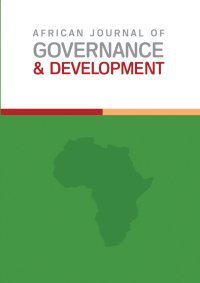Revisiting Ethnic Politics and the Federal System’s Conflict Management Capacity in Post-1995 Ethiopia
Main Article Content
Abstract
Ethiopia’s federal experiment and the political trajectory is key to understanding the worsening
ethnic conflicts and its conflict management capacity of the current African State. The country has become one of the fastest growing regional hegemonies in the world. However, Ethiopia has been hit by growing and deadly inter-ethnic conflicts, which begs critical analysis of the underlying historical (colonial politicisation of ethnicity) and the contemporary geopolitical conditions that have affected the democratisation process. Central to this paper, though, is the need to interrogate why the politics of carving out ethnicity has led to such civil unrest in Ethiopia while in other countries such as South Africa and Nigeria, it has not, and to suggest policy ideas in the heated political and policy debate. Comparative literature review is the method of the study. Analysing the Ethiopian experience provides a unique case study as it is a country that has experienced minimal or no colonial annex. The main research question is: Why has the practice of federalism failed in Ethiopia or at least created ethnic divides while in other African countries such as South Africa, it has not. To this end, the author also considered: Ethiopian People’s Democratic Front’s (EPRDF) post-1995 statehood and state-building project that has established a de facto developmental state approach; the primacy claims of class versus ethnicity questions; and the ethnicity politics in Ethiopia that seems to have reversed some of the gains achieved by the 1995 Federal Constitution. The paper argued that the brief period in which Ethiopia stayed Italy’s colony had little to do with the ethinicisation of politics and the current ethnic tension in Ethiopia, which is rather the result of the heightened rhetoric of pre-1991 Ethiopia as ‘a prison of ethnicities’ and politicisation of ethnicity is found to bear on the problems in the conflict management through federal arrangement. Overall, the finding indicated that the politicisation of ethnicity in Ethiopia continues to negatively impact on the social contract and threatens it with an eminent Balkan-style split
Article Details

This work is licensed under a Creative Commons Attribution-NonCommercial-NoDerivatives 4.0 International License.
